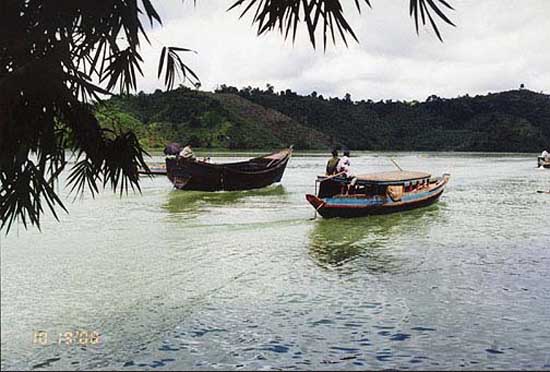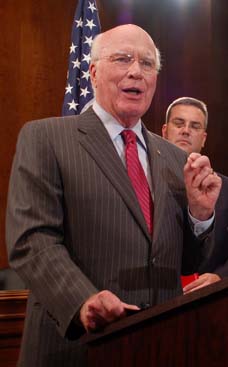
There is beauty here, especially at day's end. Twilight is short and often spectacular; we have watched the sun drop quickly over the rice paddies and behind the cocoa-nut trees by the river. A complete lack of commercialism in the countryside sometimes makes it seem impossible that it's the 20th century: multi-divided flat fields (green when we came, now parched in the dry season), dotted with small thatch-roofed villages, and roads traveled by foot or oxcart.
Rachel Schaufjler writes: The Peace Corps begins in Bangladesh - From The Volunteer Newsletter March 1962
EAST PAKISTAN
By Rachel Schaufjler
Twenty-nine of us landed at the Dacca" airport on October 28 after flying 22 hours from New York via London, Frankfurt, Vienna, Beirut, Istanbul, Karachi and Calcutta. We stopped only to refuel; I remember moving my watch ahead, continually and being served yet another meal.
In Beirut we picked up Bashir Ahmed, the camel driver, who traveled with us to Karachi. There (at the unlikely hour of 3:30 a.m.) he was met by an eager press and we by the American Ambassador, Mr. William Roimtree. We arrived in Dacca with a sense of space and timelessness, and utter weariness. Fortunately we were placed with American families to sleep for the rest of the weekend.
The group divided then; my half remaining in Dacca to live with Pakistani families and to attend language classes, while the others went 50 miles east to Comilla for more intensified classes at the Academy for Village Development. This first stage lasted about four weeks and was an excellent introduction to the people, daily life, food and Bengali. The latter is coming along slowly now, but for a while, I had serious doubts that I would ever understand anyone.
J lived with the family of Dr. Mojissundi Ahmed, a professor of chemistry at Dacca University. He is traveling now in the United States so we were a household of women: Mrs. Ahmed, their three daughters and me. They were a great help to me and getting to know each other was an experience for us all. They and their their friends are as interested in America as I am in Pakistan. Many evenings passed comparing notes on what was done where. Mrs. Ahmed and I went so far as to bake an American-style apple pie in a Pakistani-style kitchen, without an oven. It wasn't bad, considering. And the children taught me Bengali script from a first-grade reader,
At the end of November we switched places with the other half of our group and spent three weeks in Comilla. Sponsored by the Ford Foundation in conjunction with Michigan State University, the Academy of Village Development has become one of the government's greatest hopes in improving agricultural techniques, developing cooperative associations, and raising the living standards of the villagers. The problems are numerous and complex, but we were impresed with the progress that can be made on a modest and realistic scale.
We made field trips to the surrounding villages, saw how life has been carried on for the past several hundred years-where often the rice crop is insufficient to feed the family, let alone provide profit for a year's work. We were a novelty to these people; the entire village gathered around lis, friendly and curious and surprised that we spoke even a little Bengali with them, Women were absent from view; purdah-seclusion in the home as observed in Muslim countries-is still very much the practice.
Inevitably, though, a brave child would be sent to fetch us, the three girls, into some house where all the women could look us over. They were amazed: why weren't we married, where was our jewelry, didn't our hair grow, and why didn't we put cocoanut oil on it? Everywhere we have been met with warm hospitality but especially in the villages.
There is beauty here, especially at day's end. Twilight is short and often spectacular; we have watched the sun drop quickly over the rice paddies and behind the cocoa-nut trees by the river. A complete lack of commercialism in the countryside sometimes makes it seem impossible that it's the 20th century: multi-divided flat fields (green when we came, now parched in the dry season), dotted with small thatch-roofed villages, and roads traveled by foot or oxcart.
Many of us spent Christmas in Dacca. We all missed being home very much, but reunion with the rest of the Peace Corps and the hospitality of American families (and cold weather like they never told us to expect in the tropics) helped bring the holiday season to us, Christmas day was highlighted by a wonderful turkey dinner with the O'Donnells, the Consul-Gcneral and his family.
In Comilla, Bob Bums has been placed in charge of the Academy's important irrigation program. Bob and his co-workers hope to double production on land that has historically been dependent on the monsoon for a single annual crop.
Also in Comilla, Bob Taylor has invented an inexpensive machine for parboiling rice, utilizng the rice husks for fuel. Parboiled rice is easier to husk and more profitable in the market, but the problem has been a lack of fuel for heating the water. Bob's machine blows the husks over charcoal, where they burn in mid-air, supplying the intense heat necessary to boil the rice.
Lloyd Goodson is responsible for keeping the Academy's twenty tractors running. On his second night on the job, a tractor rolled over an embankment while ploughing. Lloyd carried the unconscious driver back, put him in his own bed for the night and early the next morning came out with a new tractor to right the one that had overturned. The director of the Academy particularly appreciated this because, had the truck been allowed to lie in the field all morning, word would have spread throughout the village that "The Academy's tractors lie mostly on their sides with their wheels in the air."
Mike Sedor, Bill Reder and Sherwood Tiernan are running a tennis clinic and physical conditioning classes in Dacca. One night at a party they decided to teach their Pakistani hosts to square dance. Mike called the Virginia Reel, Bill played his guitar and everybody (including the women in their saris) had a wonderful time.
Robert C. Saint of Bakersfield, California trains a young Pakistani film apprentice to use a gasoline-powered generator. Bob was responsible for the power equipment used on the East Pakistan Society of Natural Sciences expedition to St. Martin's Island in the Bay of Bengal.













